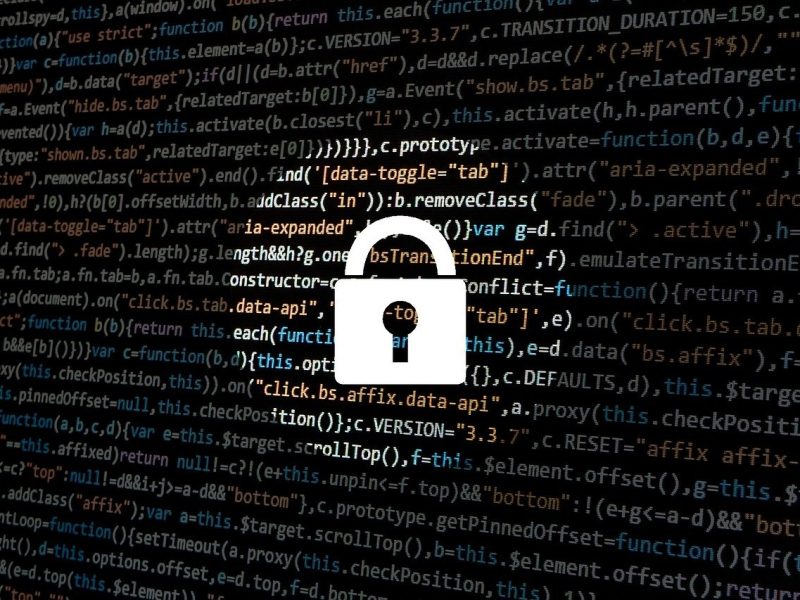In today’s digital age, the threat of identity theft looms larger than ever before. With so much of our financial lives stored and managed online, the risk of sensitive information being stolen and used fraudulently is a significant concern. Protecting your finances from identity theft is not just about being careful; it requires proactive steps and an understanding of the measures that can fortify your security.
In this comprehensive guide, we will walk through essential strategies to shield your financial wellbeing from the clutches of identity thieves.
What Steps Can I Take To Prevent Identity Theft From Damaging My Finances?
Financial vigilance is your first line of defence against identity theft. By adopting a watchful approach, you can stay one step ahead of potential threats to your financial health. Here are practical steps to prevent unauthorised access to your finances:
- Regularly monitor your credit reports and bank statements to quickly identify any unauthorised activity.
- Set up alerts on your financial accounts to receive notifications for unusual transactions or changes in account information.
- Use strong, unique passwords for all online accounts, and consider a password manager to keep them secure.
- Be cautious with personal information by shredding sensitive documents and not oversharing on social media.
- Protect your computer and mobile devices with updated security software, firewalls, and secure Wi-Fi connections to prevent cyber theft.
Taking these steps establishes a routine of careful monitoring and robust security practices. Ensuring the safety of your personal and financial information should be a staple of your daily habits, much like locking your doors at night.
Protecting Your Information: A Closer Look
Regular Checks: Reviewing account statements and credit reports becomes significantly more manageable with monthly routines.
Account Alerts: Enable SMS or email notifications to alert you the moment any suspicious activity occurs.
Password Hygiene: Investing in a password manager reinforces your digital security, making it tougher for fraudsters to gain access.
Discretion with Data: Be mindful of the personal details you dispose of or share, both offline and online, as these can be pieces in the identity theft puzzle.
Tech Safeguards: Software updates may seem insignificant, but they often patch vulnerabilities that thieves exploit.
Consistency in implementing these precautions is critical. As your habits evolve to include these safety nets, the fortress around your finances grows stronger, potentially turning away identity thieves looking for an easy target.
How Often Should I Check My Bank Statements And Credit Reports For Unusual Activity?
Frequent monitoring of your financial documents is like getting regular health check-ups; it can catch symptoms early and prevent major issues down the line.
- Regularly monitor bank statements: Experts recommend checking monthly to promptly catch any unauthorized transactions or errors.
- Annual credit report checks: Obtain and review your credit reports from the three major bureaus at least once a year for any signs of fraud.
- Set up alerts: Use your bank’s and credit card’s alert features for real-time notifications of unusual activity.
- Immediate action on red flags: Report discrepancies or strange charges immediately to minimise damage and start the resolution process.
- Consider credit monitoring services: For additional protection, subscribe to a credit monitoring service that continuously watches for suspicious activity and changes in your credit report.
Regular Reviews for Robust Security
- Monthly Bank Scrutiny: Make a date with your bank statements every month; it’s a small investment of time for a significant payoff in security.
- Credit Report Vigil: Circulate through your credit reports from Experian, Equifax, and TransUnion annually to scout for discrepancies.
- Alerts as Watchdogs: Configure alerts as an immediate response system, letting you act swiftly against potential threats.
- Active Dispute Management: Address oddities at once; procrastination can compound the problem.
- Credit Monitoring’s Safety Net: Embrace the 24/7 surveillance that credit monitoring services provide as an expert guardian of your credit profile.
By incorporating these tactics into your financial routine, you ensure that your vigilance is thorough and effective, leaving little room for identity thieves to maneuver.
What Should I Do If I Suspect I’ve Become A Victim Of Financial Identity Theft?
The realisation that your financial identity might be compromised can be alarming, but knowing the steps to take can mitigate the damage and restore your peace of mind.
- Immediately report the suspected identity theft to your bank and credit card issuers to protect your accounts and prevent further unauthorised transactions.
- Place a fraud alert on your credit reports by contacting the major credit bureaus (Experian, Equifax, and TransUnion), signalling potential creditors to take extra precautions before opening new accounts in your name.
- Review your credit reports thoroughly for any unfamiliar activity, ensuring that you identify and address all fraudulent transactions and accounts opened by the identity thief.
- File a report with the Federal Trade Commission (FTC) through IdentityTheft.gov, which can guide you through the recovery process and help you create a personal recovery plan.
- Change passwords and PIN numbers for your financial accounts, and consider implementing additional security measures such as two-factor authentication where available.
Taking Action Against Identity Theft
- Prompt Notifications: Alerting financial institutions immediately can freeze accounts and prevent loss.
- Fraud Alerts: A fraud alert acts as a red flag, making it harder for thieves to exploit your identity further.
- Credit Inspection: Scrutinize every line of your credit report; your financial health depends on it.
- FTC Assistance: The FTC’s resources are specifically designed to aid victims of identity theft recover.
- Security Upgrades: Strengthen your defenses post-incident to bolster resistance against future attacks.
Speed and precision in addressing suspected identity theft can significantly improve the chances of a quick and less painful recovery. Always act with urgency and follow the recommended steps to secure your financial identity.
Are There Any Specific Services Or Tools That Can Help Protect My Financial Information From Identity Theft?
The digital era has brought with it a powerful arsenal of tools and services dedicated to safeguarding our financial information against identity theft.
- Sign up for credit monitoring services, which alert you to any changes in your credit report, potentially indicating fraudulent activity.
- Utilize identity theft protection services that offer real-time monitoring, insurance, and recovery assistance if your identity is compromised.
- Consider using password managers to generate and store complex, unique passwords for online financial accounts to enhance security.
- Install reputable antivirus and anti-malware software on your devices to prevent malicious software from capturing your financial information.
- Enable two-factor authentication (2FA) on financial accounts whenever available, adding an extra layer of security beyond just a password.
Technological Guardians of Your Finances
- Credit Monitoring Mastery: Be the first to know about changes in your credit, deterring potential fraudsters.
- Identity Theft Shielding: Empower your defense with dedicated services keeping a vigilant eye on your personal information.
- Password Fortification: Let sophisticated password managers serve as gatekeepers to your online financial portals.
- Cybersecurity Reinforcements: Antivirus and anti-malware software act as digital immune systems against attacks.
- 2FA Implementation: Double down on account security with the added verification of two-factor authentication.
Technology plays a critical role in modern financial security strategy. By leveraging these tools, you multiply the layers of protection, creating a formidable barrier that identity thieves must bypass—an often insurmountable challenge.
How Can I Safely Manage My Personal Information Online To Reduce The Risk Of Financial Identity Theft?
Managing personal information online with care is paramount in reducing the risk of having your identity compromised.
- Use strong, unique passwords for financial accounts and consider a password manager for added security.
- Enable two-factor authentication (2FA) wherever possible to add an extra layer of protection.
- Regularly monitor bank statements and credit reports for any unauthorised transactions or accounts.
- Be cautious with personal information—don’t overshare on social media and be wary of phishing attempts.
- Utilize security features on your devices (such as fingerprint locks) and keep software up to date to prevent hacking vulnerabilities.
Safeguarding Online Information
- Password Protocols: Choose complex passwords and manage them diligently to prevent unauthorized access.
- 2FA as a Standard: Implement 2FA on all platforms that support it, significantly decreasing the potential for breaches.
- Consistent Monitoring: Stay alert to account activities to quickly identify and respond to any anomalous transactions.
- Information Discretion: Exercise caution online; even seemingly innocent details can be exploited.
- Device Defenses: Security features and software updates should be utilized to their fullest extent for optimal protection.
The fusion of cautious behavior and usage of protective technology when managing your personal information online forms a potent combination against financial identity theft.
Empowering Your Financial Security
In a world where identity theft risks are an ever-present part of our financial reality, becoming vigilant and proactive is not optional—it’s essential.
By following the outlined steps, frequently monitoring your financial statements and credit reports, acting decisively should you suspect identity theft, and harnessing the power of contemporary tools and services, you stand a strong chance of protecting your financial identity.
Remember, the combination of awareness, prevention, and response is the trifecta that can keep your finances secure in an age of digital vulnerability. Your financial peace of mind is worth the commitment to these protective measures, for the fallout from identity theft is a price too costly to bear lightly.
If you get value reading this article How To Protect Your Finances From Identity Theft, kindly share it with your friends and family on all social media platform.






